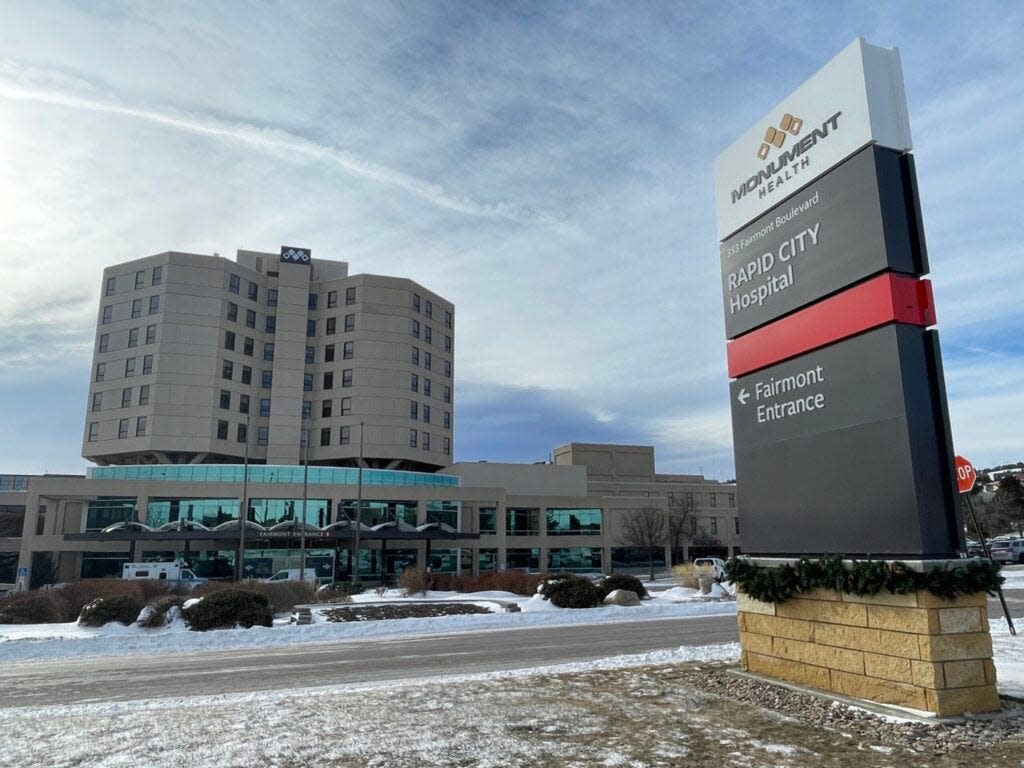Advocates: South Dakota has ‘counterproductive’ approach to drug use by mothers

Abbey Steele found herself facing a felony drug ingestion charge in 2021, based on a urine test collected after she gave birth to her first child.
Steele was among two dozen mothers whose maternity ward drug test sparked a call to the Rapid City Police Department in 2021.
The RCPD has collected the metric since mid-2016 to measure the scope of the issue of “meth-born babies” in Pennington County. It began to do so in part because no other agency at the state or local level seemed to be tracking it.
“At that time, nobody had the information,” said Brendyn Medina, a spokesman for the RCPD.
The RCPD was looking for ways to improve its response to a growing problem in the city. Drug use by pregnant women and new mothers creates a host of potential health risks, particular to each drug. It’s not a problem unique to South Dakota, of course. Each state deals with similar issues, and each has a slightly differing approach in its response to those risks.
South Dakota’s laws lean toward criminal charges.
More:Judge: Forced catheterizations by South Dakota law enforcement violated Constitution
Monument Health calls the RCPD each time the health system collects a positive screen for drugs. The police, Assistant Chief Scott Sitts said, always seek an additional test for use in potential criminal charges, through a warrant or consent of the mother.
If that second test comes back positive, Sitts said, the results are always sent to the Pennington County State’s Attorney’s Office, where prosecutors make the call on a drug ingestion charge.
“They don’t arrest the mother there on scene, because one, we need a test that’s more than a presumptive positive, and two, because of the medical situation of having just given birth, the jail would just send them right back to the hospital,” Sitts said.
Advocates: Criminal system harms new mothers
Many national advocates for maternal health see that approach to drug use by new mothers as counterproductive, or even dangerous.
The ingestion law is only part of the legal picture for mothers who use drugs in South Dakota.
The use of controlled substances can count as criminal neglect under state law – which means health care professionals are required to report it – but that’s not the case in every state. South Dakota is also one of a handful of states that allows for the civil commitment of pregnant women suspected of drug use.
“Given the composition of the laws in South Dakota, it is a uniquely punitive framework, not only for pregnant women but for people in general,” said Dana Sussman, executive director of an organization called Pregnancy Justice.
Sussman’s group advocates for a complete divorce of drug use in pregnancy and new motherhood from the criminal justice system. The group recommends that all states follow guidelines from by the National Harm Reduction Coalition in maternal drug use situations, which focus on non-judgmental intervention through techniques like motivational interviewing.
That strategy, used by social workers across the U.S. and in South Dakota, aims to illicit positive behavior change through open-ended questions, celebrations of good behavior and subtle suggestion.
More:'Meth. We're On It.': What to know about South Dakota's new anti-meth campaign
The idea is to treat substance use disorder (SUD) as a disease and manage it, rather than a crime – if the mother actually has SUD and is not just a woman who uses drugs. Attaching criminal charges to drug use tends to keep women from being honest with their health care provider, Sussman said, as they may fear losing their children or being incarcerated.
“Criminalization has a chilling effect on health care uptake. Criminalizing people prevents people from getting the help they need,” Sussman said.
There’s also a concern for relapse with women recovering from SUD in the first few months after giving birth, during which postpartum depression is a risk for all women. One study published in the scientific journal “Drug and Alcohol Dependence” found that 80% of women who abstained from drugs or alcohol during pregnancy relapsed to at least one substance in less than a year.
The American College of Obstetrics and Gynecology (ACOG) issued an opinion more than a decade ago that called the criminalization of drug use in pregnancy and afterward “a disturbing trend.”
“Seeking obstetric–gynecologic care should not expose a woman to criminal or civil penalties, such as incarceration, involuntary commitment, loss of custody of her children, or loss of housing,” the opinion says.
‘The child’s safety is the number one concern’
Stephany Chalberg, a spokesperson for Monument Health in Rapid City, declined to offer any information on Steele’s situation.
As to general practices for instances of meth-born babies, Chalberg said in a written statement that the health system follows ACOG guidelines to determine which patients qualify for drug testing.

“Pregnant women should seek medical attention for their safety and for the safety of their unborn child, without fear of retribution,” the statement says. “Monument Health’s physicians do order medical tests for the purpose of providing care to patients. Our physicians and caregivers adhere to internal and statewide policies that address suspected abuse or neglect of minors that require mandatory reporting to law enforcement.”
The statement did not address a question from South Dakota Searchlight on whether the health system seeks consent from a mother before conducting a drug screening, which is also part of ACOG guidelines.
Monument declined to say how many tests had been conducted in the past year, but did say that approximately 2,400 babies were born there last year.
The RCPD’s statistics indicate that 1% of those children tested positive for methamphetamine last year, and that the figure has grown.
More:Drug reform efforts in South Dakota not stopping, despite uncertainty of marijuana ballot measures
As with most statistics tied to methamphetamine use, Sitts said “it’s trending in the wrong direction.”
So far in 2022, Sitts’ officers have logged 26 meth-born babies – more than two each month, and two more than the 2021 total.
The police work with the Department of Social Services each time they get a call, Sitts said, in some cases taking action on behalf of children long before criminal charges emerge.
The immediate goal, he said, is to ensure the babies have a safe and healthy home to return to.
“The child’s safety is the number one concern,” Sitts said.
This article originally appeared on Sioux Falls Argus Leader: Advocates: South Dakota has ‘counterproductive’ approach to drug use by mothers

